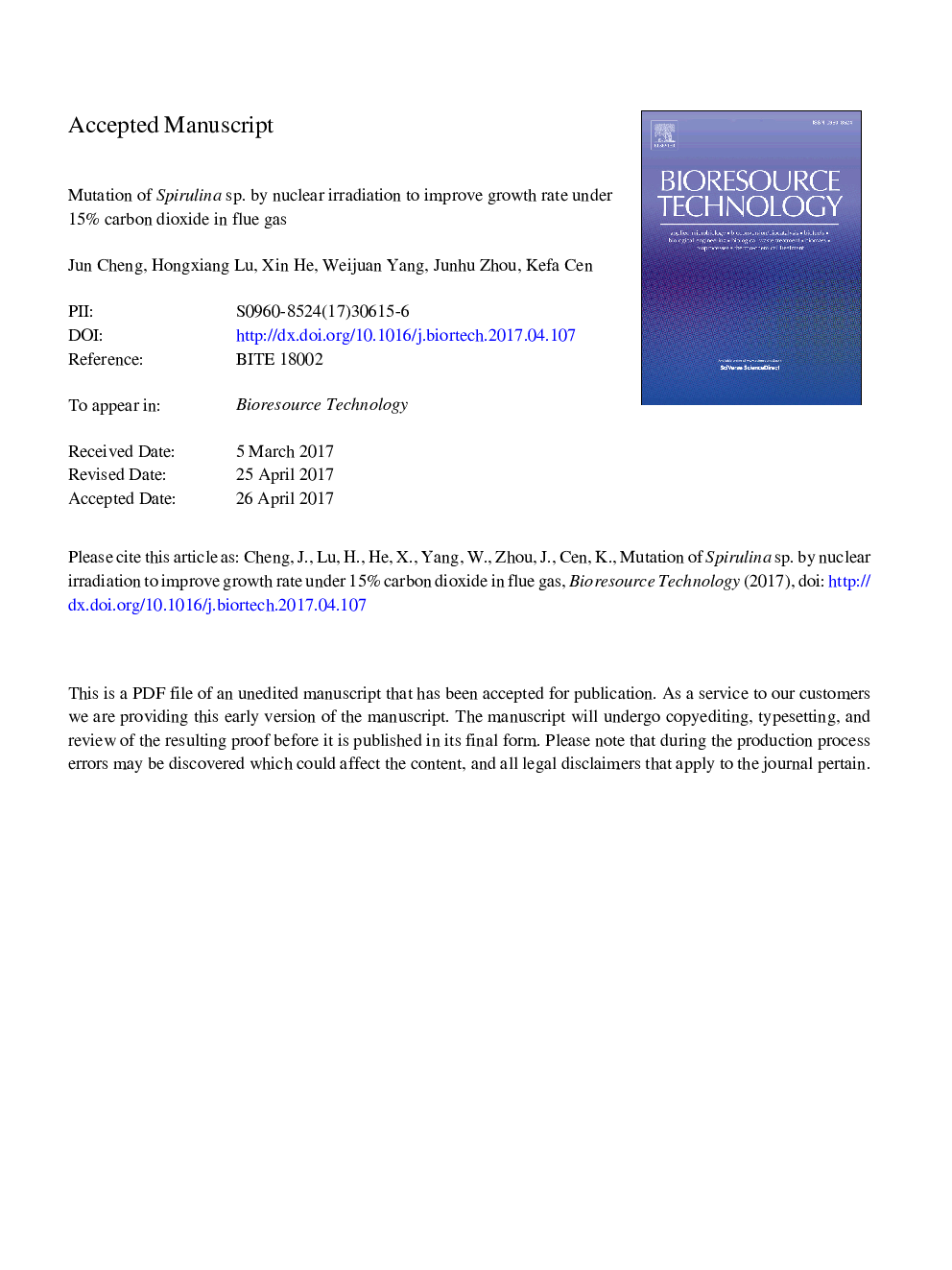| Article ID | Journal | Published Year | Pages | File Type |
|---|---|---|---|---|
| 4997265 | Bioresource Technology | 2017 | 27 Pages |
Abstract
Spirulina sp. was mutated by γ-rays from 60Co nuclear irradiation to improve growth and CO2 fixation rate under 15 vol.% CO2 (in flue gas from a power plant). Mutants with enhanced growth phenotype were obtained, with the best strain exhibiting 310% increment in biomass yield on day 4. The mutant was then domesticated with elevated CO2 concentration, and the biomass yield increased by 500% after domestication under 15 vol.% CO2, with stable inheritance. Ultrastructure of Spirulina sp. shows that the fractal dimension of Spirulina cells decreased by 23% after mutation. Pore size in the cell wall of Spirulina mutant increased by 33% after 15 vol.% CO2 domestication. This characteristic facilitated the direct penetration of CO2 into cells, thus improving CO2 biofixation rate.
Related Topics
Physical Sciences and Engineering
Chemical Engineering
Process Chemistry and Technology
Authors
Jun Cheng, Hongxiang Lu, Xin He, Weijuan Yang, Junhu Zhou, Kefa Cen,
